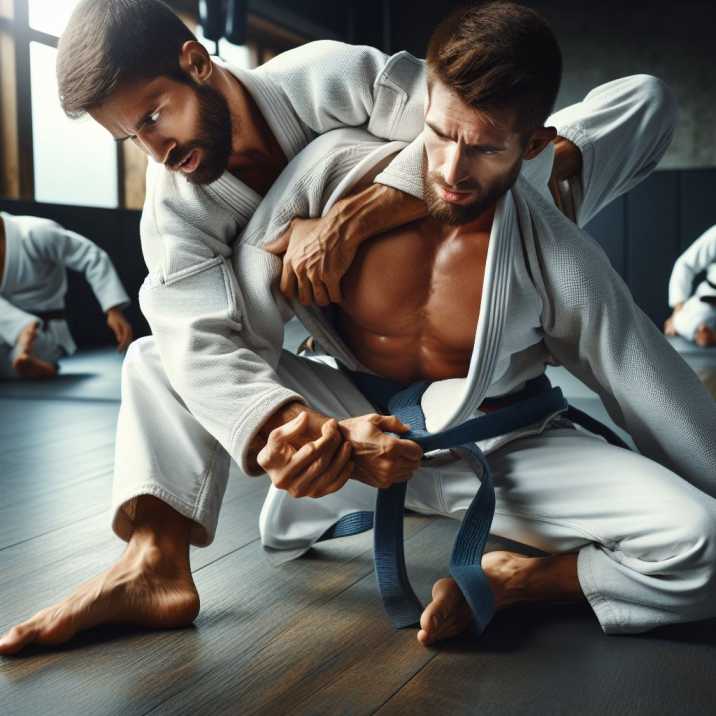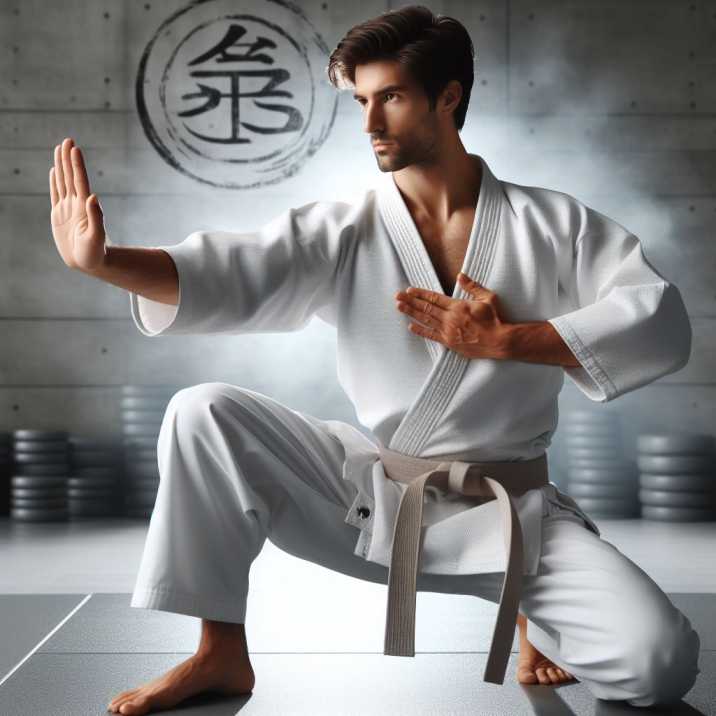Introduction
Table of Contents
Jiu Jitsu vs. Karate
Martial arts have been a source of intrigue and fascination for centuries, captivating both enthusiasts and curious minds alike. One question that echoes through dojo walls and online forums is, “Is Jiu Jitsu better than Karate?” In this comprehensive exploration, we delve into various aspects, providing you with detailed insights, practical tips, and factual information to help you unravel the mystery.
Understanding the Roots: Jiu Jitsu vs. Karate
Explore the historical origins and cultural backgrounds of Jiu Jitsu and Karate.
To truly comprehend the strengths and weaknesses of Jiu Jitsu vs. Karate, it’s crucial to delve into their roots. Jiu Jitsu, with its origins in Japan, is deeply rooted in the samurai tradition, focusing on ground fighting and submissions. On the other hand, Karate, originating in Okinawa, emphasizes striking techniques like kicks and punches. Understanding this historical context sets the stage for a more informed comparison.
Technique Spotlight: Jiu Jitsu vs. Karate’s Striking Prowess
Analyze the fundamental techniques of Jiu Jitsu and Karate, highlighting their unique strengths.
Jiu Jitsu is renowned for its ground game, involving intricate submissions and positional control. In contrast, Karate places a heavy emphasis on stand-up striking techniques, aiming to incapacitate opponents with precise and powerful moves. Each discipline excels in its own domain, making the choice between the two dependent on personal preferences and goals.
Fitness and Flexibility: Breaking Down Physical Demands
Discuss the physical demands of Jiu Jitsu and Karate, focusing on fitness and flexibility.
Engaging in martial arts goes beyond technique—it’s a physical journey. Jiu Jitsu demands a high level of flexibility and adaptability, given its ground-based nature. Karate, with its dynamic kicks and rapid movements, requires agility and cardiovascular endurance. Exploring these physical aspects will help you determine which martial art aligns with your fitness goals.
Real-World Applicability: Jiu Jitsu’s Self-Defense Edge
Explore the practicality of Jiu Jitsu in real-world self-defense situations.
One of the factors that often tip the scales in favor of Jiu Jitsu is its effectiveness in self-defense scenarios. Jiu Jitsu equips practitioners with the skills to control and neutralize opponents regardless of size or strength. We’ll delve into real-world applications, shedding light on how Jiu Jitsu techniques can be invaluable in self-defense situations.

Traditional Values: Karate’s Emphasis on Discipline and Respect
Highlight the traditional values instilled in Karate, focusing on discipline and respect.
Beyond physical prowess, martial arts are steeped in tradition and philosophy. Karate places a strong emphasis on discipline, respect, and the development of a strong moral character. This section explores how these traditional values play a crucial role in shaping not just skilled martial artists, but well-rounded individuals.

Learning Curve: Jiu Jitsu’s Complexity vs. Karate’s Simplicity
Examine the learning curves of Jiu Jitsu and Karate, discussing complexity versus simplicity.
Martial arts mastery is a journey, and the learning curve varies between Jiu Jitsu and Karate. Jiu Jitsu’s extensive repertoire of techniques can be challenging for beginners, requiring time and dedication. Meanwhile, Karate, with its more straightforward approach, may offer a quicker path to proficiency. We’ll navigate through the intricacies of both learning experiences, helping you make an informed decision.
Competition Landscape: Jiu Jitsu Tournaments vs. Karate Championships
Compare the competitive scenes of Jiu Jitsu vs. Karate, exploring tournaments and championships.
For those seeking a competitive outlet, understanding the landscape of Jiu Jitsu tournaments and Karate championships is essential. Jiu Jitsu competitions often involve grappling and submission-focused matches, while Karate tournaments showcase striking prowess. This section provides insights into the excitement and challenges each competitive arena presents.
Balancing Act: Can Jiu Jitsu and Karate Coexist?
Discuss the possibility of combining Jiu Jitsu and Karate for a well-rounded skill set.
For the martial arts enthusiast unwilling to settle for just one discipline, combining Jiu Jitsu and Karate might be the perfect solution. This section explores the benefits of cross-training, offering a balanced approach that integrates the strengths of both martial arts.
Conclusion: Choosing Your Path in the Martial Arts Journey
As we reach the conclusion of this exploration, the question of whether Jiu Jitsu is better than Karate remains subjective. The decision ultimately hinges on your personal goals, preferences, and the values you seek in a martial art. Whether you choose the ground-based finesse of Jiu Jitsu or the striking elegance of Karate, remember that the journey itself is as significant as the destination.
FAQs:
- Which martial art is better for self-defense?
- The effectiveness of Jiu Jitsu in real-world self-defense scenarios makes it a popular choice for those seeking practical and applicable skills.
- Can I practice both Jiu Jitsu and Karate simultaneously?
- Absolutely! Combining Jiu Jitsu and Karate through cross-training can offer a well-rounded skill set, allowing you to enjoy the benefits of both disciplines.
- Is Karate easier to learn than Jiu Jitsu?
- Karate’s more straightforward approach may make it seem easier for beginners, but the learning curve ultimately depends on individual preferences and dedication.
- Which martial art is more physically demanding?
- Jiu Jitsu demands a high level of flexibility, while Karate requires agility and cardiovascular endurance. The physical demands vary, catering to different fitness goals.
- Are there specific competitions for Jiu Jitsu and Karate?
- Yes, Jiu Jitsu tournaments and Karate championships offer platforms for practitioners to showcase their skills in grappling and striking, respectively.


